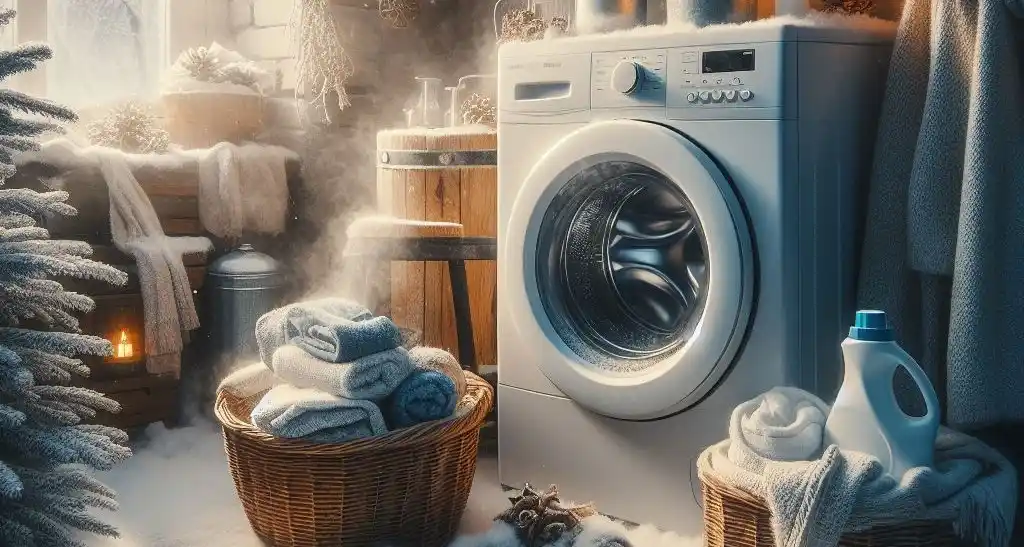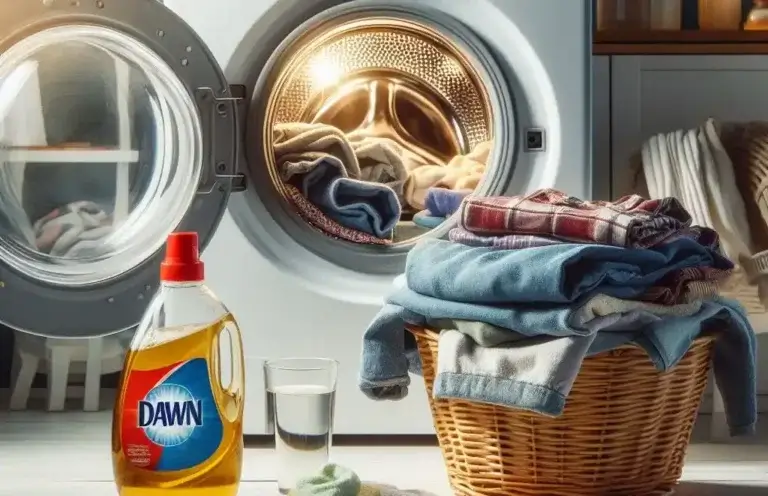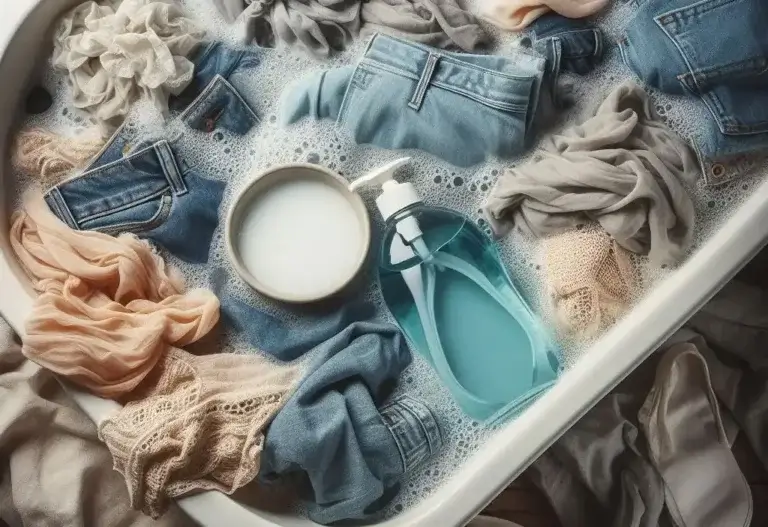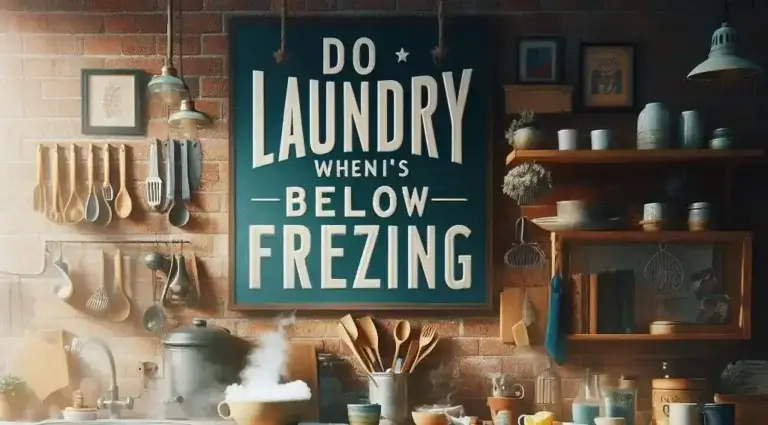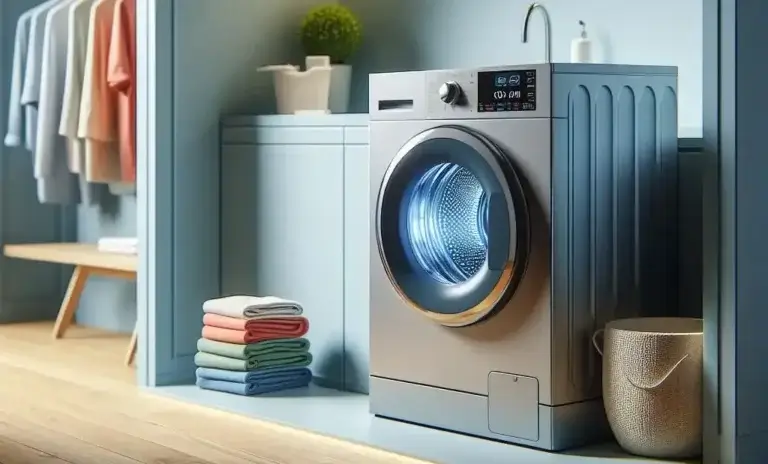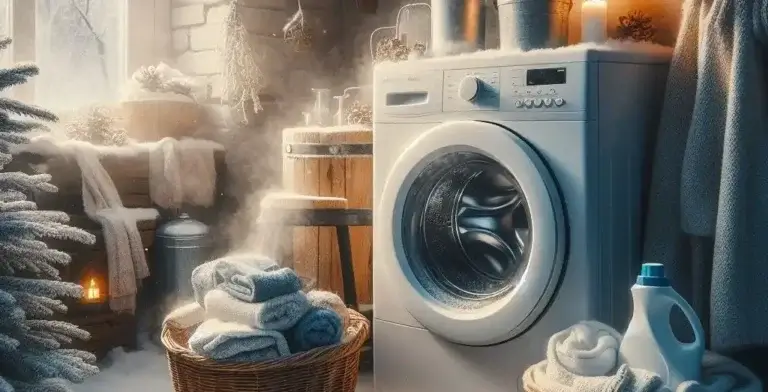Can You Use Washing Machine in Freezing Weather? Your Appliance Guide for Extreme Cold Weather
Are you wondering If the temperatures are below freezing, it may be handy to use a space heater for winter appliance repair in a basement or garage. Do you still use your washing machine when it’s extremely cold outside? Freezing temperatures can affect your appliances and how they operate. From washing machines to refrigerators, colder weather brings its own set of challenges.
In this complete guide, we’ll cover everything you need to know about whether can you use washing machine in freezing weather. We’ll discuss how the cold impacts different appliances, tips for winterizing them, whether you can run them in freezing temperatures, what issues to look out for, and much more.
Table of Contents
How Extreme Cold Temperatures Can Affect Your Appliances
Before getting into specifics on washing machines, let’s first understand how and why freezing temperatures can impact appliances in your home.
When the mercury dips well below freezing—we’re talking 0°F/-18°C or lower—it puts household appliances at risk in several key ways:
- Frozen pipes and hoses: The water lines connecting to appliances can freeze, causing cracks or bursts. This is especially true for plastic water lines from the wall that can be vulnerable to extreme cold if they’re located in a garage or basement.
- Ice buildup: Ice and snow accumulating around vents or motors can prevent proper airflow. This can cause overheating issues.
- Power issues: Extreme cold paired with high winds or ice can down power lines. Losing electricity means losing the ability to run any appliances.
- Component damage: Some appliance components just aren’t built to withstand bitterly cold air or wind. Prolonged exposure can lead to cracking or seizing up.
- Operational challenges: Even if there’s no damage, appliance functionality can still be impacted in cold weather. Issues like longer run times, improper drainage, error codes, and more can crop up.
Now that you know what kinds of cold weather problems can strike appliances, let’s get specific…
Can You Use Washing Machine in Freezing Weather
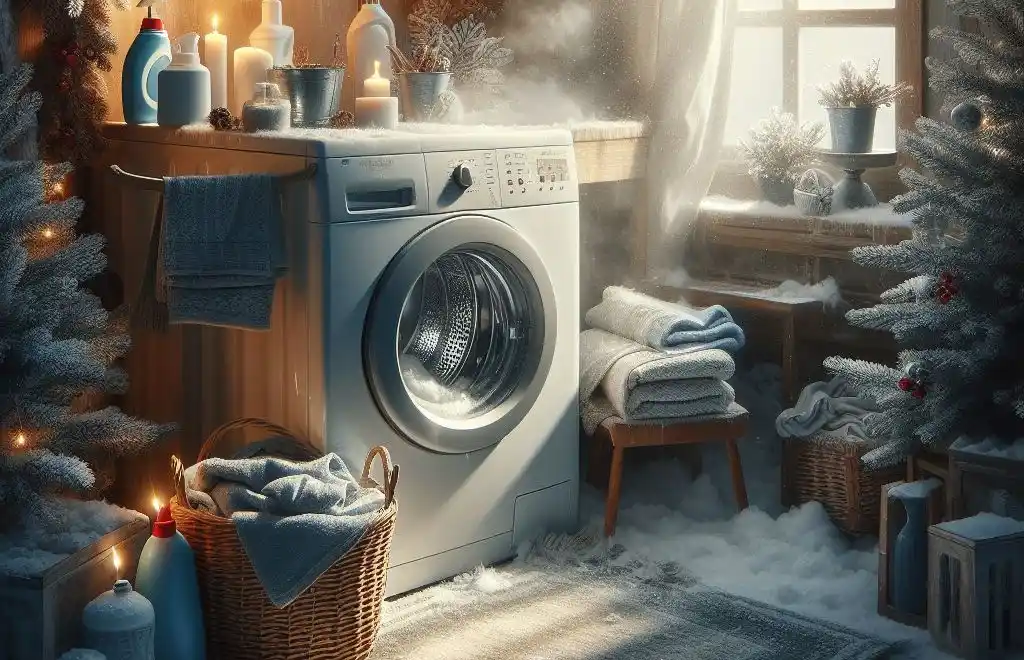
When it comes to laundry, people most often ask, “Can I use my washing machine in the garage or basement when the temperatures are below freezing outside?“
The short answer, when inquiring about Can You Use Washing Machine in Freezing Weather? Yes—but you’ll need to take some special precautions.
Even modern washing machines that are designed to handle colder water temperatures can still develop problems in freezing weather. Here’s what you should know:
How Cold Temperatures Affect Washing Machines
Extended exposure to freezing air or harsh winds outside can lead to a buildup of ice or snow around vital washing machine parts, namely the water hookups. Here are some common issues:
- Frozen hoses: When the temperature drops far enough, the water inside rubber or plastic inlet hoses can freeze. This expansion causes cracks and bursts.
- Valve failures can be hazardous when temperatures are below freezing. Both hot and cold water intake valves on a washer rely on being kept above freezing to function. Dip too far below this, and they can stick or stop working completely. This prevents water from entering the machine.
- Pump seizing: Small amounts of water left sitting in the pump or internal tub can freeze. Ice expansion jams up components that are meant to spin freely.
- Drain failures: Just like the fill valves, drain valves, and pumps rely on flowing water—not frozen water—to work properly. Any ice blockages stop the machine’s ability to pump out water.
While the washing machine’s internal components are built to handle cold water, the external parts remain vulnerable without taking proper winter weather precautions.
Tips for Using Your Washer in the Cold
Okay, so can you run a washing machine when it’s below freezing outside? There are certainly best practices for safely running washers, dryers, refrigerators, and other appliances in cold temperatures. Here are tips on winterizing your washing machine:
Insulate All Water Lines
Protect any exposed water lines leading to or from your washer. This includes the screw-on supply hoses that feed water into the back of the machine. Wrap all lines with insulating foam or heat tape. This helps prevent freezing, cracks, and bursts.
Install Heat Tape on Drain Lines
It’s not just the water inlet lines you have to worry about—the drain line is also vulnerable. Check for any sections of exposed drain hose or pipe that lead outside to a standpipe or other discharge point. Wrapping heat tape around these lines keeps water moving freely.
Disconnect Hoses When Not in Use
For washing machines that might sit unused for weeks at a time in a cold basement or unheated vacation home, it’s best to disconnect or insulate the hoses and shut off the water valves. Using appliance repair eliminates any remaining water in the lines and removes all risk of being vulnerable to extreme ice blockages and hose ruptures.
Check the Detergent Compartment for Standing Water
While not used as frequently in the winter, the liquid detergent compartment sometimes holds a small pool of leftover water. Empty any excess water to prevent freezing issues.
Leave Washer Door Open After Runs
Once you’re done running a load of laundry in cold weather, prop or wedge the washer door open. This allows air circulation to prevent any interior moisture from freezing up. It’s one added safeguard against mechanical problems.
Consider a Space Heater for the Laundry Room
For laundry setups in uninsulated basements or attics, a small electric space heater on low can provide just enough ambient heat to keep washing machine valves, pumps, and lines from freezing up.
Will a Washing Machine Still Work in Below Freezing Temps?
Even with the right winterization and insulation precautions, you might still find yourself needing to use your washing machine when it’s bitterly cold out—and the mercury keeps dipping!
So when temperatures remain below freezing day after day, can you run a washer then?
Generally speaking, yes a washing machine is designed to function with cold inlet water. But with freezing air temperatures, problems can still crop up.
As long as your washing machine itself is located in a place where you can drain the water effectively, inside where it’s above freezing, and you follow the proper cold weather care guidelines, running loads with cold water is perfectly fine.
However, issues are more likely to occur with washing machines stored in unheated areas like detached garages, closed-in porches, or basements. The valves, pumps, and hoses will freeze far quicker when exposed to below-freezing conditions full-time. Running a load and then trying to drain it usually won’t end smoothly.
The Department of Energy considers laundry appliances quite resilient in cold temperatures—but again, only if they’re in a heated indoor area.
“Washing machines and dryers are relatively sturdy appliances. The water in the washing machine and water lines for both appliances can freeze, but there should be minimal chance for permanent damage.”
So while possible to use washers in freezing temperatures, you’re best off preventing that scenario entirely by storing them in insulated indoor areas only.
For second refrigerators kept in the garage or laundry setups in cold basements, be sure to prep them for winter and avoid use during frigid conditions. We’ll cover more tips for that shortly.
Protecting Other Appliances from Freezing Cold
Aside from laundry, people also commonly ask questions like:
- Can your refrigerator or freezer handle below-freezing winter temps if the power goes out?
- Is it okay for my fridge or HVAC system to get covered in snow and ice?
- What about appliances like the dishwasher that connects to water lines?
Let’s go over winterizing tips and usage guidance for other key appliances as cold weather sets in. Follow these guidelines to keep them running smoothly all winter long.
Refrigerators & Freezers
These chilled appliances require constant electricity to maintain safe food storage temperatures. However additional freezing temperatures can help in a power loss scenario. Here’s how you can winterize your washer to handle cold-weather fridge and freezer issues:
- During an outage, avoid opening either appliance in the garage or basement during Celsius-dipping temperatures. so the existing cold air mass stays trapped inside longer. A full freezer can maintain temperatures below freezing for 24 to 36 hours if left unopened. Fridges may last only half as long.
- For garages or seasonal homes: If leaving for an extended absence, prop the door open slightly before leaving to allow airflow and prevent mildew growth if power is off.
- Prevent ice dams on coils and vents by clearing snow drifts after each snowfall so airflow isn’t restricted. Also, shovel around the foundation.
- Disconnect ice makers as prolonged below-freezing indoor temperatures can damage the water-fill components.
- If the garage fridge develops an ice buildup, running a defrost cycle might help but don’t force it open or use sharp tools to chip away at any ice. Safely restoring power and running a defrost option allows the ice to melt naturally from the heat of the coils. If it fails to defrost, then calling a repair technician or contacting us is the safest bet for diagnosis and removing a stuck ice buildup. They have the tools and expertise to handle it.
Dishwashers

These handy appliances have a couple of vulnerable points where below-freezing temperatures can cause trouble:
- The water inlet valve that supplies the dishwasher can freeze up for the same reasons washing machine hoses freeze. Protect this line with heat tape or insulation.
- With dishwashers that have visible metal Regularly check the water supply tubes in colder Celsius months in your garage or basement. on the outside of the unit, cold winds coupled with wet conditions cause excess ice buildup here as well. Insulate these metal lines too.
- For seasonal vacation homes, winterizing your dishwasher is smart. Turn off the water valve, press Start to begin a drain cycle, and remove water in the pump. Once complete, disconnect the water line entering the valve. This depressurizes the line so freezing and splitting are less likely.
Following winter appliance care best practices for dishwashers prevents unexpected issues down the road.
Heating & Cooling Systems (HVAC)
With heating and cooling appliances like furnaces, heat pumps, and central air conditioners, their job is literally to withstand the elements through rain, snow, intense heat, and extreme cold all year long. So they can continue running in freezing winter weather just fine, but Problems arise when:
- Ice or snow piles up around the outdoor condenser units: This blocks airflow which can lead to inefficiency or even mechanical damage over time as components overheat internally. Use cleaning products to clear debris in water supply tubes after storm systems.
- Heavy snow or ice falling from the roof Cold temperatures can cause harm when it lands on HVAC condenser coils, bending or crushing them. Consider building a sheltering cover over the HVAC unit, especially if it’s located in a garage or basement, to protect it from extreme cold.
- Buried HVAC vents outdoors happen whenever enough snow stacks up preventing optimal airflow. Either shovel out vents or install vent covers with taller openings designed for snow country.
- Frozen drainage lines over time, debris, or mold can block the condensate drain line using cleaning products. This could cause excess water to overflow, and freeze around the unit if the temperatures are below freezing, instead of draining away from the home. Have an HVAC technician routinely flush the drain line.
Routinely checking an HVAC system after inclement weather and clearing snow, ice, or debris buildup is crucial. This ensures optimal airflow and drainage to prevent cold-weather HVAC failure. Proper maintenance keeps these appliances humming along nicely despite harsh winter conditions.
FAQs: Using Appliances in Freezing Temperatures
We’ve covered quite a bit of information on how freezing temperatures impact major appliances like washers, dryers, refrigerators, HVAC systems, and more.
To wrap things up, here are answers to some of the most frequently asked questions on running appliances when it’s cold outside:
Can I run my washing machine if it’s cold outside?
Yes, you can use a washing machine when temperatures are below freezing—if it’s in a heated indoor room and you follow proper winterization tips covered earlier.
Is it bad to run your refrigerator if it’s below freezing inside the garage?
Avoid running any refrigerator in sub-freezing temperatures. The compressor strains inefficiently leading to excess wear or failure over time. Insulate the garage or install an interior space heater for cold storage areas.
Can HVAC systems run properly if covered in snow?
While HVAC systems are built to withstand winter weather, heavy ice, and snow deposits should be cleared after each storm. Blocked airflow leads to inefficiency and eventual mechanical damage.
What temperature is too cold for a dishwasher to work correctly?
Dishwasher components can handle water temps down to 40°F safely. However, insulating the supply line is smart to avoid valve freezing. If garage temps dip below freezing, disconnect the water line and winterize it.
Will my washer hoses still burst if I run hot water through them?
Unfortunately yes, washing machine hoses can still rupture even with hot water flowing if freezing air temperatures are present. To drain the water effectively, it’s crucial to insulate hoses and pipes whenever appliances are exposed to sustained sub-freezing conditions.
Can I add antifreeze to my washing machine?
Never add automotive antifreeze to a washing machine! RV-style antifreeze is safer for use in plumbing lines but simply insulating pipes is the easiest cold-weather fix.
We hope this all-in-one guide better explains how extreme freezing temperatures impact appliances and how to keep using them safely in cold weather. Many household appliances are designed to handle reasonable winter conditions—but bitter sub-zero cold calls for extra TLC and maintenance.
Follow these winter appliance tips diligently in your basement or garage at the end of each season to avoid headaches or serious issues down the road! Stay cozy and warm this winter 🙂
Summary of Main Points:
- Extreme cold can negatively impact appliances like washing machines, refrigerators, and HVAC units through frozen pipes, ice buildup, and power issues.
- Take steps to properly winterize appliances like insulating water lines, preventing snow/ice blockages around vents, disconnecting water lines, and moderating temperatures.
- Washers are generally hardy enough for below-freezing indoor conditions but require special precautions when situated in unheated areas exposed to sub-zero outdoor air for long periods.
- Dishwashers, HVAC systems, and refrigerators also need vigilance like checking for leaks, clearing snow after storms, and disconnecting water in vacation homes to avoid cold weather appliance failure or permanent damage from expanding ice.
- Following winter appliance maintenance tips keeps all household systems running optimally through freezing weather.
Conclusion: Can You Use Washing Machine in Freezing Weather
We’ve covered the full gamut of appliance functionality during intensely cold winters. Hopefully, this guide prepared you with everything needed to safely run all household appliances even when temperatures remain sub-zero outside for weeks on end.
While designed reasonably hard against winter conditions, taking those extra preventative steps guarantees washing machines, HVAC equipment, and refrigerators survive the season in full working order.
Did we miss any good freezing weather usage tips or precautions for certain appliances? Have you dealt with winter-related washers, fridges, or HVAC breakdowns before in your basement or garage? Let us know in the comments if you have any other cold temperature challenges so we can address them here!
Stay cozy this winter, but remember to winterize your washing machine and insulate hoses with pipe insulation 🙂

